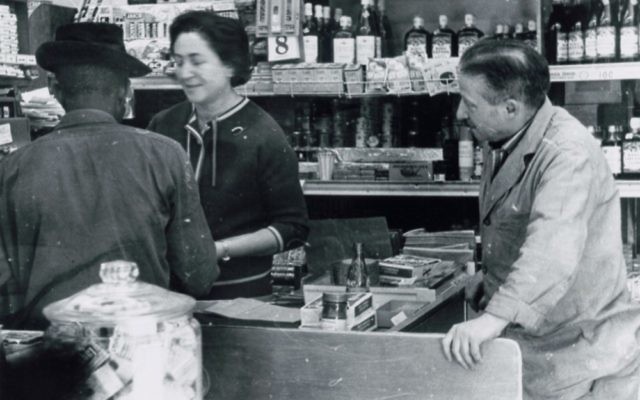Look Back in Longing
Artistic nostalgia proves popular amid political unease.

The year is still young, but 2017 already is becoming a year for the Atlanta Jewish community to look to the past.
We are awash in nostalgia.
The Atlanta Jewish Film Festival, which was set to conclude Wednesday night, Feb. 15, always gives a vigorous nod to history. But the 17th festival seemed to revel in the past.
The opening night film, “Alone in Berlin,” took us back 75 years to the first half of World War II to speak clearly about the importance of the individual in a world beset by Nazi moral tyranny.
The festival included a recently discovered and reconstructed conversation from almost 50 years ago with the first Israeli prime minister, David Ben-Gurion, in retirement, then screened a fascinating replay of Maccabi Tel Aviv’s European championship basketball season of 40 years ago.
There was a documentary about racial hypocrisy at the 1936 Olympics, another about the big hit song from 1930, “Body and Soul,” and a look back at a long-neglected rock ’n’ roll hitmaker, Bert Berns, who died 50 years ago.
For one of the three retro screenings, the festival chose “Radio Days,” a Woody Allen film that fondly remembers the golden age of radio at the end of the 1930s and start of the 1940s. Another was a 1982 film, “My Favorite Year,” affectionately recalling the early days of television in the 1950s.
Looking at that narrow slice of the dozens of films screened during the three weeks of the festival might give you the impression that the AJFF programmers were aiming at an insignificant demographic. But all those journeys back in time were well attended, and some were sold out.
In 2017 nostalgia sells.
Part of the reason the past is such a hot market is that America is getting older. It has been 60 years since Elvis Presley shook up national television on “The Ed Sullivan Show” in 1956 and changed American popular culture forever.
The baby boomers who crowded living rooms for that first performance still wield significant influence in an America that is growing older.
We have a new 70-year-old president who rode to the White House on a promise to take us back to a simpler time.
Based on demographic projections, the number of Americans in their 70s will grow by 50 percent in the next 10 years and by more than 80 percent by 2035.
As our population ages, so does an appreciation of the movies, music and other cultural influences we grew up with. The past just looks better. The certainties of what we knew growing up look more appealing than the uncertainties we face in this new year.
It is not just baby boomers who have a keen interest in the past; nostalgia has gotten a scholarly makeover. It has its own college textbooks. Scholarly research on nostalgia has become the source for academic programs on a growing number of college campuses.
Marketers have tapped into the past to sell everything from automobiles to kitchen appliances to chewing gum.
All this interest in the past may be bringing us to a better understanding of what lies ahead. The way we think and feel about the past could guide us to a smarter future.
That must surely be part of the goal of two new creative offerings in the next month.
The first is the Alliance Theatre’s new production of “The Temple Bombing,” which opens Wednesday, Feb. 22.
This highly anticipated adaptation of Melissa Fay Greene’s best seller of the same name is about the explosion that rocked The Temple in Midtown in the early hours of Oct. 12, 1958.
The blast caused no casualties but shook up the city of Atlanta for years to come.
The Temple’s spiritual leader at the time, Rabbi Jacob Rothschild, whose outspoken support for civil rights made the synagogue a target, was prophetic in his response.
He roused his congregants on the Shabbat after the bombing by proclaiming that “all of us together shall rear from the rubble of devastation a city and a land in which all men are truly brothers and none shall make them afraid.”
Popular music and a new generation of entertainers also carried that message to a national audience poised to remake America in the decades to come. The role Jews played in shaping that important conversation was significant and widespread.
On Sunday, March 19, the Breman Jewish Heritage Museum and Theatrical Outfit are presenting “Some Kind of Wonderful: Rock Music From 1956-1966” to remember the contributions of Jewish artists during that tumultuous period of social change.
What has become the stuff of nostalgia was, in the hands of a generation a half-century ago, the inspiration for the revolutionary ways in which Americans lived and worked together.
Bringing the events of the late 1950s back into focus, it’s hoped, not only will revive the memories of those who lived through that time, but also will help shake up a new generation that might not be fully aware of the achievements of the past.
Bob Bahr begins a six-week course at The Temple on Wednesday, Feb. 22, that is open to the public, “Movie, Music and Spirit — The Southern Roots of An American Revolution 1945-1960.”



comments